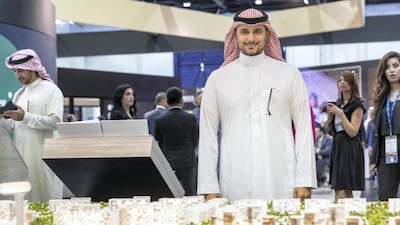KBW Ventures is looking to increase its investments in the US technology sector, its chairman Prince Khaled bin Alwaleed bin Talal said.
The venture capital firm has already invested in 24 companies in e-gaming, e-commerce and the plant-based protein sector, among others, so far this year. It is planning to invest in five more companies by the end of 2019.
"Last month, we closed five investments and we are looking to increase our investments in the US. By the end of this year, we will have investments in about 30 companies," Prince Khaled told The National. He did not provide details about the total value of the investments or the name of the companies.
In an interview with Bloomberg last month, Prince Khaled said KBW had invested in companies like Zipline, a drone delivery service, Geltor, a California-based start-up that makes plant-based collagen, and Beyond Meat, among others.
"We opened up access to the Middle East for these companies and the Middle East has a lot more to offer than a blank cheque. About 70 per cent of Saudi Arabia's population is below 30 years of age and they are excited about venture capital and want to be entrepreneurs and want to start new businesses [rather] than taking on father's businesses," he told Bloomberg.
Middle East investors are increasing their allocations to technology firms across the globe. Abu Dhabi-based Mubadala Investment Company, through its venture capital arm Mubadala Ventures, launched a $400 million European technology fund last year and a $200m “fund of funds” programme. It has also committed $15bn to SoftBank’s first iteration of its Vision Fund. Saudi Arabia's Public Investment Fund is the biggest single investor in the Vision Fund.
KBW Ventures is continuing to make investments despite fears of a global recession.
“I am hoping that it would be a quick recession as opposed to being a heavy one and I don’t see that being an issue right now until the election year is over and then we'll see how it goes," Prince Khaled said.
“Typically, election years are upmarket, the market usually goes up, it is hard to judge whether there is recession or not. But here (in the region) I don’t feel there is a recession and there is a slowdown [but it] is not heavy as in previous years.”
Although Saudi Arabia has faced a slowdown due to a reduction in oil prices and heightened tensions, he said that efforts were being made regionally to boost the economy.
“At the end of the day, governments are ploughing through and doing a lot of amazing programmes, and still actively investing internationally.”



